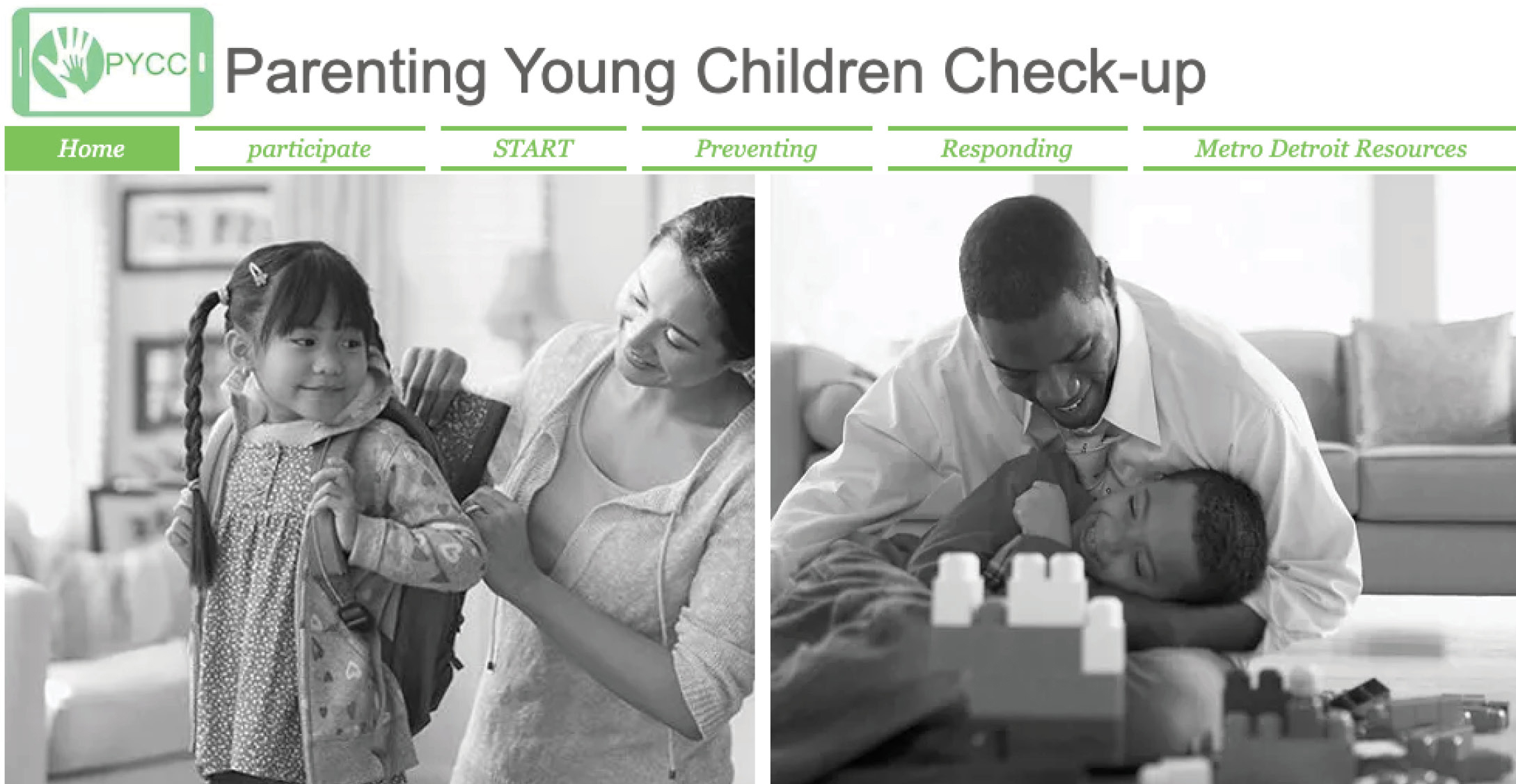Online Help for Parents of Young Children
BACK TO IMPRINTS NEWSLETTER
 Lucy McGoron, PhD, cares about the parenting of young children. As an applied developmental psychologist and a mother of two she knows firsthand that finding trustworthy parenting advice can be difficult. For parents of children who exhibit disruptive behaviors, getting effective help can be even more challenging.
Lucy McGoron, PhD, cares about the parenting of young children. As an applied developmental psychologist and a mother of two she knows firsthand that finding trustworthy parenting advice can be difficult. For parents of children who exhibit disruptive behaviors, getting effective help can be even more challenging.
"Parenting help has to somehow fit into a parent's day, and the daily demands of parenting are high," Dr. McGoron said. "Not many resources out there are easy to access and based on high quality research." About four years ago, Dr. McGoron won a $554,000 grant from the National Institute of Mental Health to develop a text and website-based program full of strategies proven to help parents calm disruptive behaviors. Today that research project is an website available free of charge to any parent.
PYCC shows parents how to prevent and respond to young kids' challenging behaviors. Parents learn strategies like using Labeled Praise, Following a Daily Routine, using Logical Consequences, and following a Time-out procedure. Dozens of parents tested the Parenting Young Children Checkup (PYCC) program during its initial research phase. They responded to an ad for the project and got text messages that connected them to relevant content on the PYCC website.
 Info is self-paced, colorful, illustrated via video clips and delivered in manageable amounts. "My vision is that at the end of the day, parents can sit on the couch and watch these videos on their phones," Dr. McGoron said. "They don't have to drive anywhere or call anyone. It's right there on the device they're already using." PYCC is also a no-judgment zone. Parents aren't scolded or criticized; they are simply given an array approaches that have been shown to work.
Info is self-paced, colorful, illustrated via video clips and delivered in manageable amounts. "My vision is that at the end of the day, parents can sit on the couch and watch these videos on their phones," Dr. McGoron said. "They don't have to drive anywhere or call anyone. It's right there on the device they're already using." PYCC is also a no-judgment zone. Parents aren't scolded or criticized; they are simply given an array approaches that have been shown to work.
Calming Disruptive Behaviors
Feedback to researchers was positive with parents reporting fewer challenging behaviors in their children after they started using PYCC. "The information we offer works in a variety of settings," Dr. McGoron said. "And it isn't just for parents of disruptive children. All children exhibit challenging behaviors from time to time. PYCC can help parents manage a range of behaviors."
Dr. McGoron used PYCC tips on her own children when they were younger. "My favorite was 'special play time' where I made a point to play one-on-one with them every day. A lot of these skills are effective with older children, too, and adults. Communication tips like how to give clear, direct commands work for everyone." She advises parents to be the right parent for their specific child. A parent must get to know their child to understand how best to parent him or her. Routines like Special Play Time build that understanding and relationship. "Young children are difficult to engage in conversation. We get to know them by playing with them and understanding how they like to play. The relationship you build will last for years, through adolescence and beyond."
One surprise of the project was how receptive parents were to PYCC. Dr. McGoron had been taught that parents often resist being told how to parent, so she and her team worked hard to make sure the tone and content of the website supported parents without criticizing. The approach worked. Every parent in the research project was open to receiving the PYCC information. Parents asked her why she was doing so much to motivate them to use PYCC. "Of course I would use this," they said. "It helps. Why wouldn't I use it?"
Are you the parent of a young child with disruptive behaviors? Visit PYCC's website for videos and other resources. No charge or membership is needed to access the site. https://www.parentingcheckup.org/start